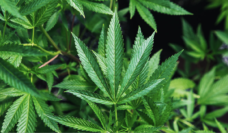America’s Health Rankings, an annual cooperative effort by the American Public Health Association and the United Health Foundation that serves as the nation’s report card on health, has consistently rated Massachusetts among the healthiest states in the nation over the last quarter century. The Commonwealth has placed third overall for the last two years, and, this year, ranks first in the health of women and children.
Massachusetts has an enviable record in providing for the public health of its residents. The ballot question to make recreational marijuana legal, however, puts our public health in jeopardy.
In considering Question 4, voters must ask some critical questions: Do we want to endanger our public health? Is legalization worth the risk to the health of our children? Is it worth the risk to highway and occupational safety?
Physicians believe the answers to those questions are no. The Massachusetts Medical Society and ten statewide physician specialty groups have declared their opposition to Question 4. These groups represent a wide spectrum of medical specialties – including primary care, pediatrics, psychiatry, obstetrics and gynecology, and emergency medicine.
All are united in saying no to legalization because of the negative impact it would have on public health and safety and the dangers it presents to our children and adolescents.
Marijuana is not a harmless substance. The main psychoactive – mind-altering – ingredient in marijuana is tetrahydro-cannabinol (THC), and the plant contains more than 500 other chemicals, including over 100 compounds that are chemically related to THC, called cannabinoids. To consider smoking or ingesting such a substance, any substance, that can produce adverse effects on mental and physical health as a “recreational” activity is ill-advised.
Physicians are particularly concerned about the impact of this law on young people. The National Institute on Drug Abuse indicates that teenagers’ perception of the risks of marijuana use have steadily declined over the past decade, possibly related to increasing public debate about legalizing or loosening restrictions on marijuana for medical and recreational use. The American Academy of Pediatrics has stated that making marijuana more available for adults, regardless of restrictions, increases access for youth and persuades them that it’s not dangerous. Pediatricians also note that marijuana can impair memory and concentration in adolescents, interfere with their learning, and lower their chances of completing high school or college.
We know that a risk of addiction exists with marijuana, ranging anywhere from 9 percent to as high as 50 percent, depending on when use begins, the age of the user, and how often it is used. We know it can lead to cognitive impairment and that it has a damaging effect on adolescent brain development. We also know it presents a risk during pregnancy, and that it can pose threats to highway and occupational safety.
For those reasons alone, voters should reject recreational marijuana.
Simply put, this ballot question was written by and for the marijuana industry without any regard for the public health of the citizens of the Commonwealth
But the ballot question itself provides three more reasons to vote no: (1) It permits the sale of marijuana edibles — cookies, candies, snack food, and drinks – which are especially appealing to children; (2) It lacks any public health oversight or authority in the development of regulations that would guide implementation of the law; and (3) It has no provisions for any revenue from the sale of the drug to be earmarked for health education, prevention, or treatment programs.
The experience of Colorado should enlighten us. Since approving the recreational use of the drug in 2012, Colorado has seen an increase in marijuana use by youth 12-17 (56 percent higher than the national average), a rise in marijuana-related emergency room visits (29 percent) and hospitalizations (38 percent), and a jump in marijuana-related traffic deaths (48 percent).
The reasons to reject Question 4 are many and compelling. As voters make their decisions this November, however, one more question is worth considering: Should we expand access to a drug with a potential for addiction, one that can endanger our young people, when we are battling an epidemic of opioid abuse that is already disrupting and destroying too many lives? I say – and vote – no.
Editor’s note: click here to read the counter-argument by Jim Borghesani, communications director of the Campaign to Regulate Marijuana Like Tobacco.
Featured image by Alexis Breaux.













